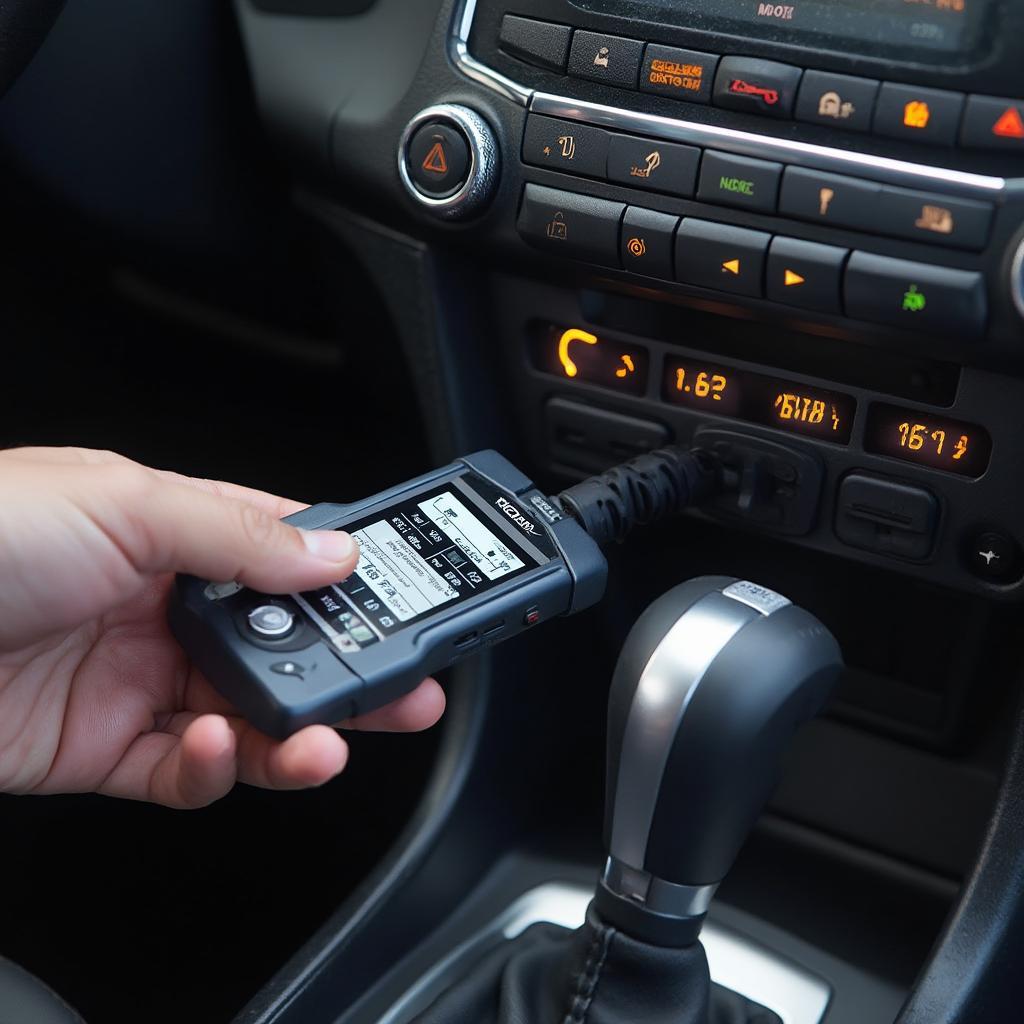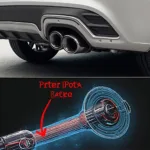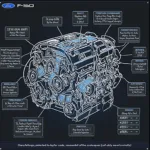Understanding the transition from OBD1 to OBD2 in Honda vehicles is crucial for effective diagnostics and maintenance. This guide covers everything from the differences between the two systems to the conversion process and common issues you might encounter.
Many Honda owners find themselves grappling with the nuances of OBD1 and OBD2 systems. This comprehensive guide aims to demystify the transition and provide valuable insights for both DIY enthusiasts and professional mechanics. We’ll explore the reasons behind the shift, the key distinctions between the systems, and the practical implications for your Honda. For specific information on the distributor conversion, check out our guide on honda obd2 to obd1 distributor conversion.
Understanding the OBD Systems
OBD, or On-Board Diagnostics, is a standardized system that allows you to access your car’s diagnostic information. OBD1, the older system, is less sophisticated than its successor, OBD2. OBD1 systems are generally manufacturer-specific, meaning the diagnostic tools and procedures vary from one car make to another. OBD2, introduced in 1996 for most vehicles in the United States, is standardized across all makes and models, simplifying the diagnostic process. This standardization also allows for more comprehensive monitoring of emissions-related components.
Why the Shift from OBD1 to OBD2?
The primary driver for the shift to OBD2 was environmental regulation. OBD2 systems offer more stringent monitoring of emissions, helping to identify and address issues that contribute to air pollution. The standardized nature of OBD2 also made it easier for regulatory bodies to enforce emissions standards across the automotive industry.
Key Differences between OBD1 and OBD2 in Honda
The differences between OBD1 and OBD2 extend beyond standardization. OBD2 offers several improvements, including:
- Standardized Connector: Unlike OBD1’s varied connectors, OBD2 uses a standardized 16-pin connector.
- Enhanced Data: OBD2 provides access to a wider range of data points, enabling more accurate diagnostics.
- Real-time Monitoring: OBD2 allows for real-time monitoring of various engine parameters, giving you immediate insights into your car’s performance.
- Improved Emission Control: OBD2’s stricter monitoring of emissions-related components helps ensure your Honda runs cleaner.
Converting from OBD1 to OBD2 in Honda
Converting a Honda from OBD1 to OBD2 can be complex and requires specialized knowledge. Several factors influence the conversion process, including the specific Honda model and year. You may need to replace various components, including the ECU, wiring harness, and sensors. If you’re looking for details on distributor changes, you might find our article on Honda Civic distributors helpful: honda civic distributor obd1 obd2.
What You Need for OBD1 to OBD2 Honda Conversion
A successful conversion typically involves:
- Research: Thoroughly research your specific Honda model and year.
- Parts Acquisition: Procure the necessary components, including a compatible OBD2 ECU, wiring harness, and sensors. You can find more information on distributors here: obd1 to obd2 honda distributor.
- Installation: Carefully install the new components, ensuring proper connections and grounding.
- Testing: After installation, thoroughly test the system to confirm functionality.
Common Issues and Troubleshooting
During and after the conversion, you may encounter issues such as:
- Check Engine Light: A persistent Check Engine Light may indicate issues with the new system. Use an OBD2 scanner to retrieve the trouble codes and diagnose the problem.
- Compatibility Problems: Ensure all components are compatible with your specific Honda model. Converting your harness might be an option, see more about this here: convert obd2 harness to obd1 honda.
- Wiring Issues: Double-check all wiring connections to ensure they are secure and correctly routed. You might want to look into using an adapter: honda obd1 to obd2 distributor adapter.
“A common mistake during OBD conversions is overlooking the importance of a compatible wiring harness,” says John Smith, Senior Automotive Technician at AutoTech Solutions. “Choosing the correct harness ensures seamless communication between the ECU and other components.”
 OBD2 Scanner Diagnosing a Honda
OBD2 Scanner Diagnosing a Honda
Conclusion
Converting your obd1 to obd2 honda requires careful planning and execution. By understanding the key differences between the systems and following the proper procedures, you can successfully upgrade your Honda and benefit from the enhanced diagnostics and emissions control of OBD2. Remember to thoroughly research your specific Honda model and seek professional assistance if needed.
“A properly executed OBD2 conversion can not only improve your Honda’s emissions but also enhance its overall performance and drivability,” adds Maria Garcia, Lead Diagnostics Specialist at CarCare Experts.
FAQs
Q: Why should I convert my Honda from OBD1 to OBD2?
A: The main benefits are improved emissions control and more comprehensive diagnostics.
Q: Can I convert my Honda myself?
A: While possible, it’s a complex process requiring specialized knowledge.
Q: What are the common problems during the conversion process?
A: Compatibility issues, wiring problems, and a persistent Check Engine Light are common.
Q: Where can I find the necessary parts for the conversion?
A: Reputable auto parts suppliers and online retailers.
Q: Is an OBD2 conversion required by law?
A: Not for older vehicles, but it’s beneficial for diagnostics and maintenance.
Q: What tools do I need for the conversion?
A: Basic hand tools, wiring diagrams, and potentially specialized tools for specific models.
Q: How can I check if the conversion was successful?
A: Use an OBD2 scanner to check for trouble codes and monitor real-time data.
Need help with your OBD1 to OBD2 Honda conversion? Contact us via WhatsApp: +1(641)206-8880, Email: [email protected] or visit our workshop at 789 Elm Street, San Francisco, CA 94102, USA. Our 24/7 customer support team is ready to assist you. We also have other resources available on our website. Consider checking out related articles like “honda obd2 to obd1 distributor conversion” for more specific information.

